SDG
IBGE launches publication about the 10 years of the Sustainable Development Goals
October 24, 2025 01h53 PM | Last Updated: October 28, 2025 01h31 AM
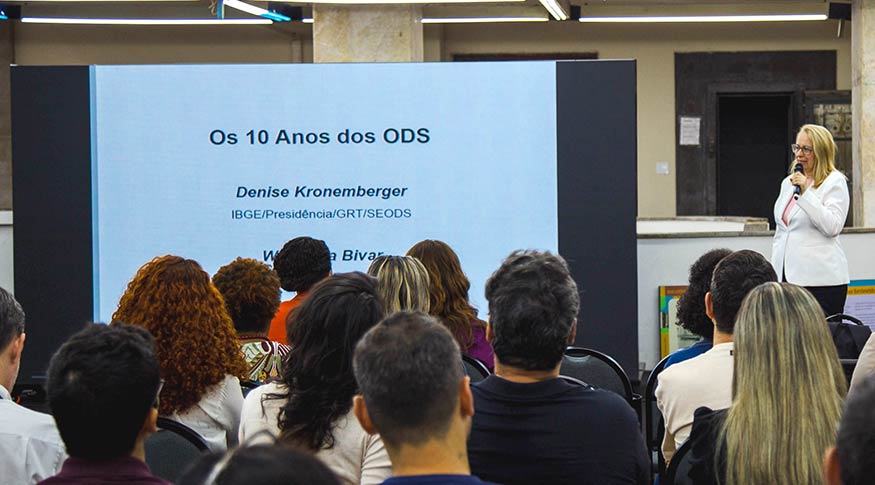
The Brazilian Institute of Geography and Statistics (IBGE) launched, on Thursday (23), the publication Reflections about the 2030 Agenda - 10 Years of the Sustainable Development Goals, at Casa Brasil IBGE, in Rio de Janeiro (RJ).
The event, which was broadcast live on Digital IBGE (watch here), celebrates a decade of efforts made by the IBGE and partner institutions in the production of indicators for monitoring Sustainable Development Goals (SDG), established by UN in 2015.
The publication offers a deep analysis about the advances, challenges and lessons learned from the 2023 Agenda in Brazil. Divided into eight chapters, the work approaches the environmental, social and economic dimensions of SDG, besides topics such as data disaggregation, geoinformation, academic research and the recently launched SDG 18 – Ethnic-Racial Equality, proposed by Brazil in 2023.
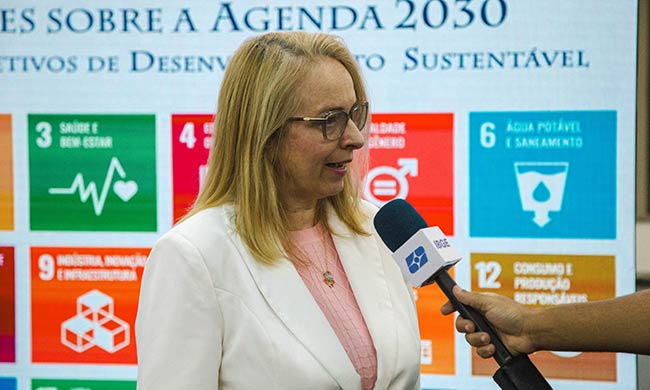
Denise Kronemberger, general coordinator of the SDG Indicators Project at the IBGE, highlighted the Institute's 10 years of collaboration on the publication. "This agenda is signed by UN member states in 2015, and since then, national statistical offices have helped produce these indicators in partnership with ministries and agencies."
Cimar Pereira, advisor to the Presidency, reinforced that the publication is more than a result: it is a call to action. "This is a commitment we have undertaken and it is now part of our institutional identity. The reflections of experts from various fields build collective knowledge."
The relationship between the SDGs and current global affairs was the main topic of the speech by Cláudio Crespo advisor to the Directorate of Surveys (DPE), during the launch. "This topic may be a powerful one, but there are challenges to it. Therefore, it's important to produce information so that society itself can see where it has advanced or regressed, drawing attention to the environment, health, and the economy. This publication is a lens for all of this."
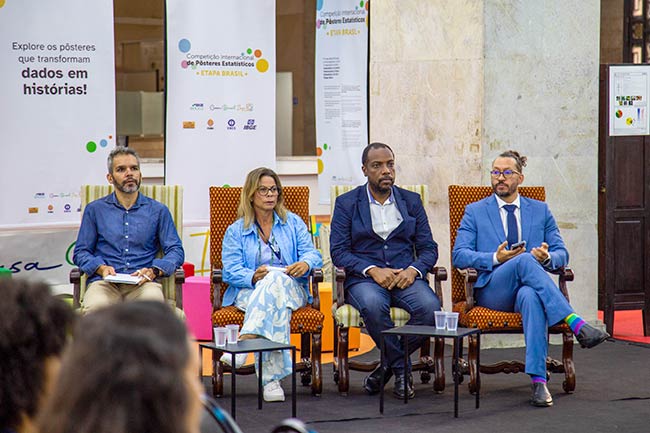
Katia Goes, advisor to the Directorate of Geosciences (DGC), described the work as a major global information system. "The objectives deal with public policies, strategies, and social initiatives, with a commitment to the present and future generations."
The National School of Statistical Sciences (ENCE), represented by deputy coordinator César Augusto, highlighted how the SDGs are a source of information for the academia. "It is a source of reflection and guides our actions. We are developing an action plan for ENCE and have seen that other higher education institutions use these data as guidelines—in addition to being used for the production of data, indicators, and monitoring."
Represemtative of the United Nations Population Fund (UNFPA) in Brazil, Florbela Fernandes explained that the objective is to document the country's avance toward the goals. "The publication monitors commitments, achievements, and steps taken toward achieving the goals, and it shows what is missing so we can make improvements."
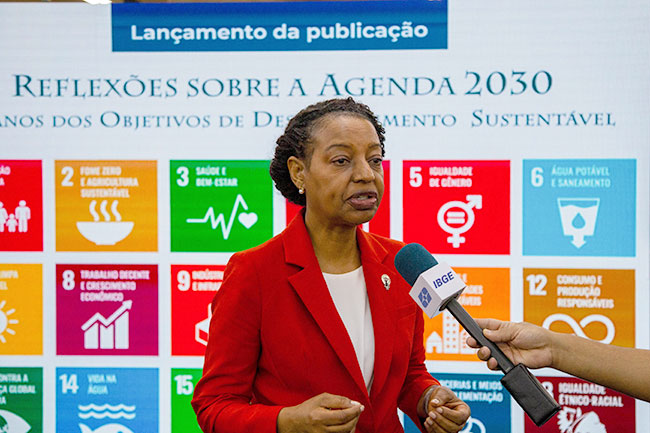 Florbela Fernandes, UNFPA representative, highlighted the progress of Brazil regarding SDG targets - Photo: Pablo Félix
Florbela Fernandes, UNFPA representative, highlighted the progress of Brazil regarding SDG targets - Photo: Pablo Félix
2030 Agenda: a global commitment
The 2030 Agenda consists of 17 SDGs and 169 targets that aim to promote sustainable development in its environmental, social, and economic dimensions. To monitor these objectives, the UN Statistical Commission defined global indicators based on standardized methodologies developed by international agencies in cooperation with member countries.
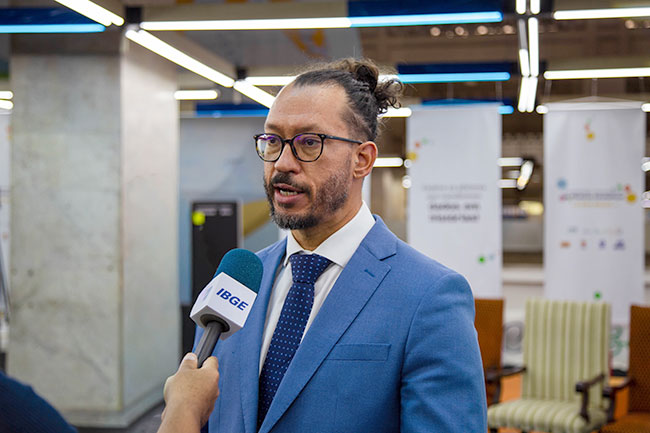
Thiago Galvão, advisor to the National Commission for Sustainable Development Goals, highlighted IBGE's role as a technical advisory body. "The Institute is one of these pillars and has played an important role in the the territorialization of the agenda and in the monitoring process."
These indicators are essential for assessing the progress of the 2030 Agenda, strengthening national statistical systems, and ensuring compliance with the commitments made in 2015, both across generations and within each society.




















